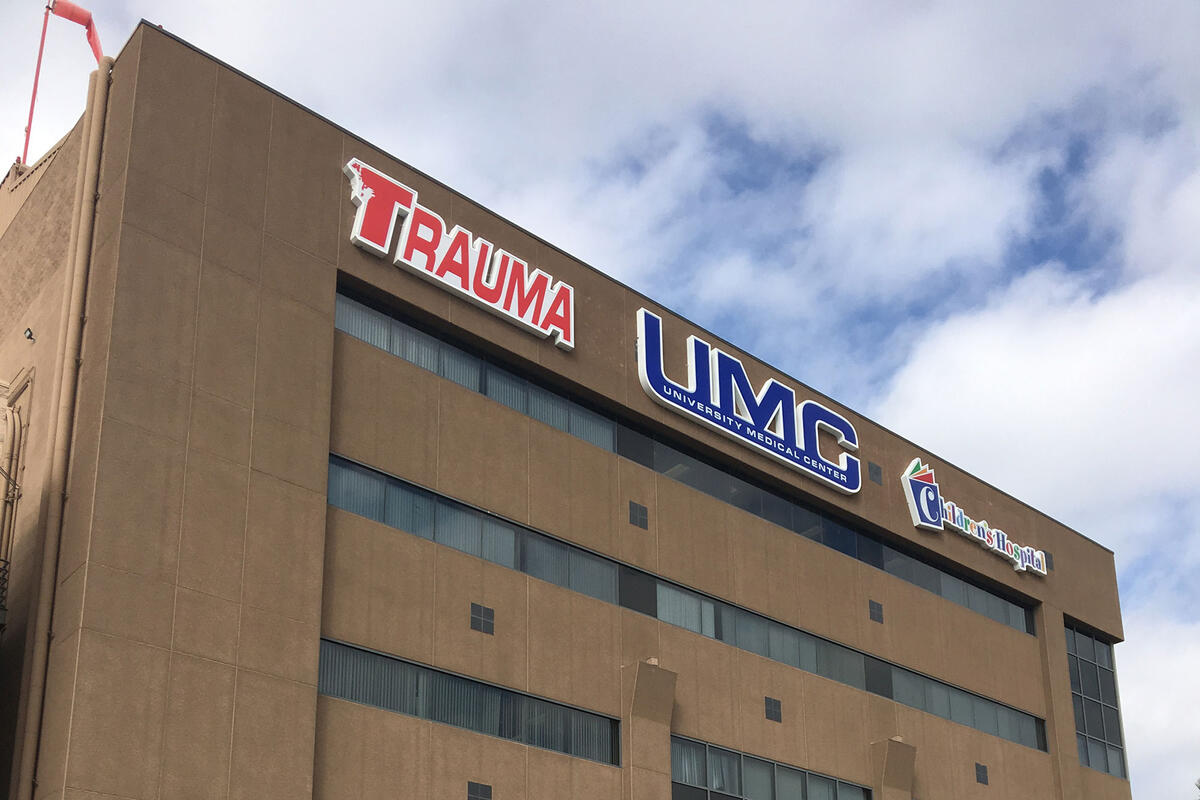
Department of Surgery
It is our mission to continue a path of excellence in clinical practice, education, and research.
Department Overview
The department of surgery offers eight first-year positions as a surgical house officer through the National Residency Matching Program. Three of the first-year positions are categorical general surgery positions, two are Air Force categorical general surgery positions, and three are one-year preliminary positions. The postgraduate surgical curriculum meets and exceeds the guidelines and requirements recommended by the Accreditation Council for Graduate Medical Education (ACGME) Residency Review Committee for Surgery and the American Board of Surgery.
Graduate Medical Education
Residency Program
The Kirk Kerkorian School of Medicine at UNLV Department of Surgery offers one residency program: general surgery. This program is designed to advance the training of physicians in order to provide the highest quality of care and compassion in surgery procedures in Nevada. Residents train for five clinical, post-graduate years at University Medical Center of Southern Nevada and complete rotations at other Las Vegas hospitals including the North Las Vegas VA Medical Center and Mike O'Callaghan Military Medical Center.
Fellowship Program
Research and Funded Projects
There are several grant-funded projects within the department, including traffic safety research, the prevention of colorectal anastomosis failure with the finite element model (FEM) validated with the ex-vivo (outside the living body) model, and the transanal resection of rectal lesions with the ColumbrisMX Endoluminal Surgical System.
Traffic Safety Research
The main priority of the traffic safety research group is to help improve Nevada’s traffic safety for all road users. Primary research includes the Nevada Road Users Linked Database Research and the Statistical Transparency of Policing (STOP) projects. Research findings are shared with the public via social media infographics, fact sheets, newsletters, presentations, reports, data dashboards, and publications. This research helps identify priority areas for injury prevention and informs legislative initiatives that will impact the safety of Nevada road users.
FEM and EX-Vivo Model
This project aims to develop reproducible ex-vivo and finite element models (FEM) that can understand, predict, and eventually prevent the failure of colorectal anastomoses. We plan to develop a finite element modeling approach to simulate these two types of anastomoses. This project has the potential to change the way colorectal surgery is practiced, improving patient outcomes.
Surgery Resident Handbook
Please refer to the Graduate Medical Education Resident Handbook.